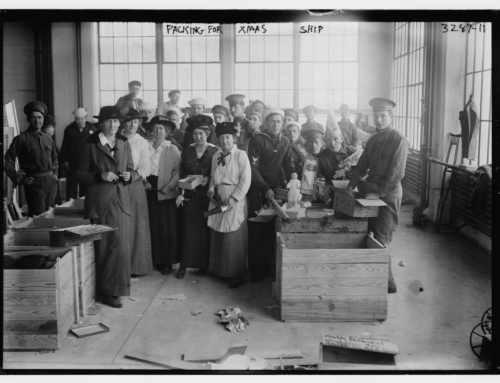Serpents of War: An American Officer’s Story of World War I Combat and Captivity
Published: 7 November 2023
By Peter L. Belmonte
via the Roads to the Great War web site

Wounded Men of the 316th Infantry at Hill 378
Wounded Men of the 316th Infantry at Hill 378.
Harry Parkin (1880–1946) was born into a well-to-do Pittsburgh family. He was a product of the prewar Plattsburgh training camp as well as the April 1917 Fort Niagara Officers Training Camp. Commissioned a captain, Parkin commanded a company and then a battalion of the 316th Infantry Regiment, part of the National Army’s 79th Division. He rose to the rank of major and was in temporary command of the regiment for a short time during the Meuse-Argonne Offensive.
 Severely wounded in action and captured by the Germans on 4 November 1918, Parkin, who earned the Distinguished Service Cross for his actions on that day, survived the war and captivity and wrote this excellent memoir describing his service. His citation reads in part:
Severely wounded in action and captured by the Germans on 4 November 1918, Parkin, who earned the Distinguished Service Cross for his actions on that day, survived the war and captivity and wrote this excellent memoir describing his service. His citation reads in part:
. . For extraordinary heroism in action at Hill 378, the Borne du Cornouiller, France, November 4, 1918, while in command of one of the assaulting battalions of the 316th Infantry. Leading the attack, Major Parkin received four wounds from enemy machine-gun fire, but declined to be evacuated, remaining with his command in the position he had captured, temporarily assigning active command of his battalion to his senior captain. Later, learning that his officer had been killed, Major Parkin, despite intense suffering from his wounds, again assumed active command, and under a terrific enemy concentration of artillery and machine-gun fire, defended the position with great bravery and gallantry against counterattacks by vastly superior numbers of the enemy forces.
Editors Steven Trout and Ian Isherwood are historians who specialize in war and memory. They have provided an excellent service in editing and presenting this memoir. Their introduction is helpful, and their annotations are sufficient to explain, when necessary, without unduly interrupting Parkin’s narrative. Serpents of War proceeds chronologically with Parkin describing his actions and his struggles throughout his service. He recounts his experiences with his fellow regimental officers in such mundane affairs as lengthy marches and the search of adequate quarters. The highlight of the narrative is Parkin’s description of his regiment’s participation in the Meuse-Argonne Offensive. During the opening of the battle, the 79th Division, which was completely new to the front line, was assigned probably the most difficult task of any American Expeditionary Forces (AEF) unit on the first day, that of taking Montfaucon, a heavily fortified position.
Parkin’s description of his regiment’s marching and fighting are vivid. He makes the reader understand and feel the exhaustion felt by the men after several days of combat in poor weather with minimal food, water, and rest. In that regard, the difficulties encountered by the AEF in supplying troops during the battle are brought to the fore. Likewise, the problems associated with a rapid advance over terrible terrain meant that the infantrymen often had to make an assault with sparse or non-existent artillery support during this drive.
Read the entire article on the Roads to the Great War web site here:
External Web Site Notice: This page contains information directly presented from an external source. The terms and conditions of this page may not be the same as those of this website. Click here to read the full disclaimer notice for external web sites. Thank you.



